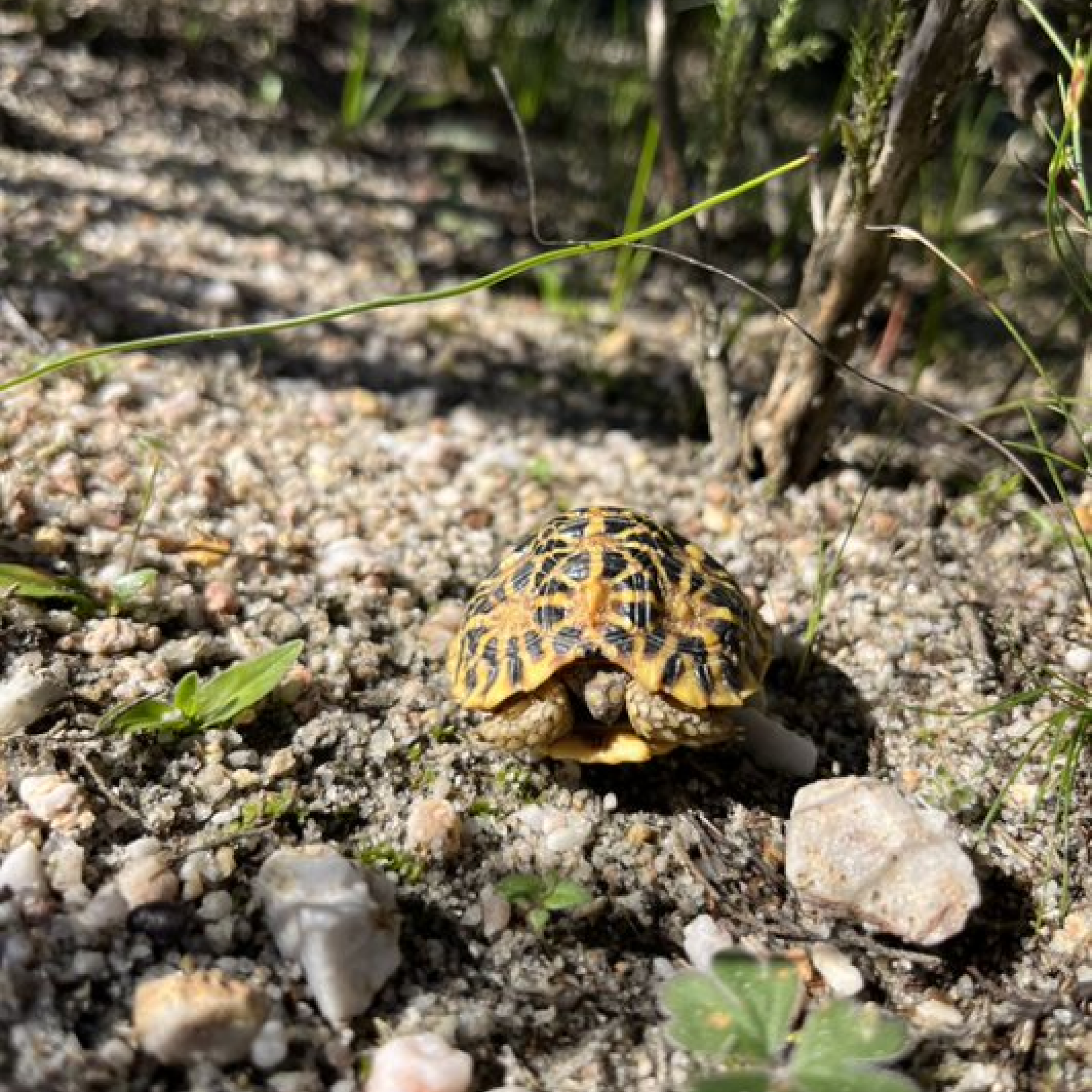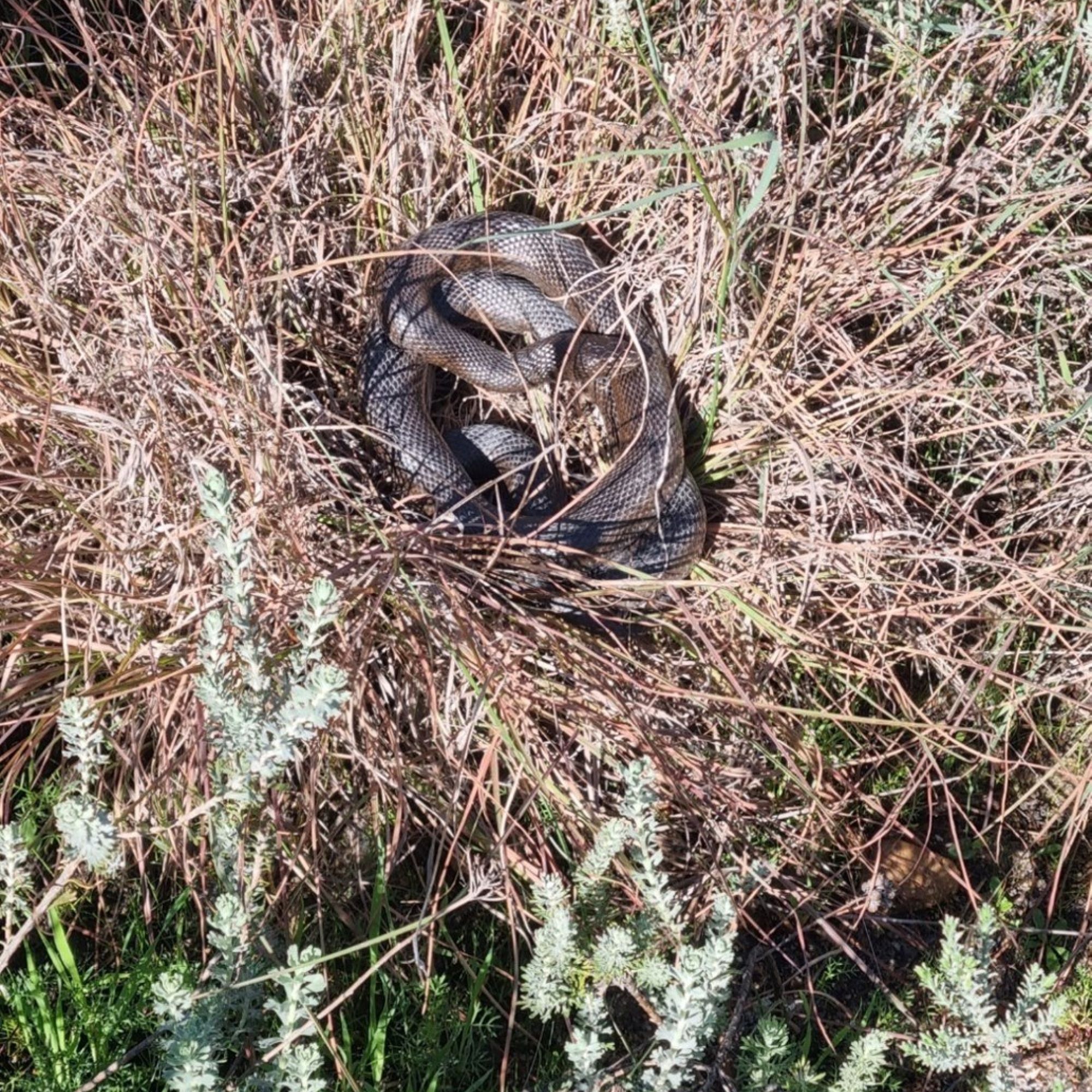
Monitoring of Critically Endangered Geometric Tortoise
The geometric tortoise (Psammobates geometricus), classified as Critically Endangered, ranks among the top 25 most imperilled tortoises and turtles globally. Its future remains uncertain, with an estimated wild population of fewer than 3000. This species is highly specialised in its habitat requirements, historically found in the low-lying renosterveld shrublands of the Swartland, Upper Breede River Valley, and Ceres Valley. The geometric tortoise endures as a fragmented population within its historical range, facing severe threats primarily due to habitat destruction and fragmentation.
Over 90% of its original habitat has been irrevocably converted for agriculture, while remaining habitats face ongoing threats from human settlement, invasive alien plants, predators (including invasive feral pigs), overgrasing by domestic livestock, droughts, and wildfires, seriously imperilling its survival.
To support the conservation of the geometric tortoise, CapeNature conducts annual monitoring at various sites, including Voëlvlei and Briers Louw Nature Reserves. This year, monitoring was conducted over three days at both reserves, resulting in the observation of 11 geometric tortoises, including juveniles. The team also recorded angulate tortoises (Chersina angulata) and speckled padlopers (Homopus areolatus). This comprehensive documentation of tortoise species presence and abundance contributes to our understanding of community dynamics.
During the survey, the team also encountered ten mole snakes (Pseudaspis cana) at Briers Louw Nature Reserve. This unexpected discovery could be attributed to recent heavy rainfall, which may have temporarily flooded their burrows, prompting them to surface, making them more visible.

Juvenile Geometric Tortoise at JN Briers Louw Nature Reserve.

Adult Mole Snake basking in the sun.

CapeNature Staff walking transects to find and record tortoises.
Dr Ernst Baard, a true friend of the geometric tortoise.




